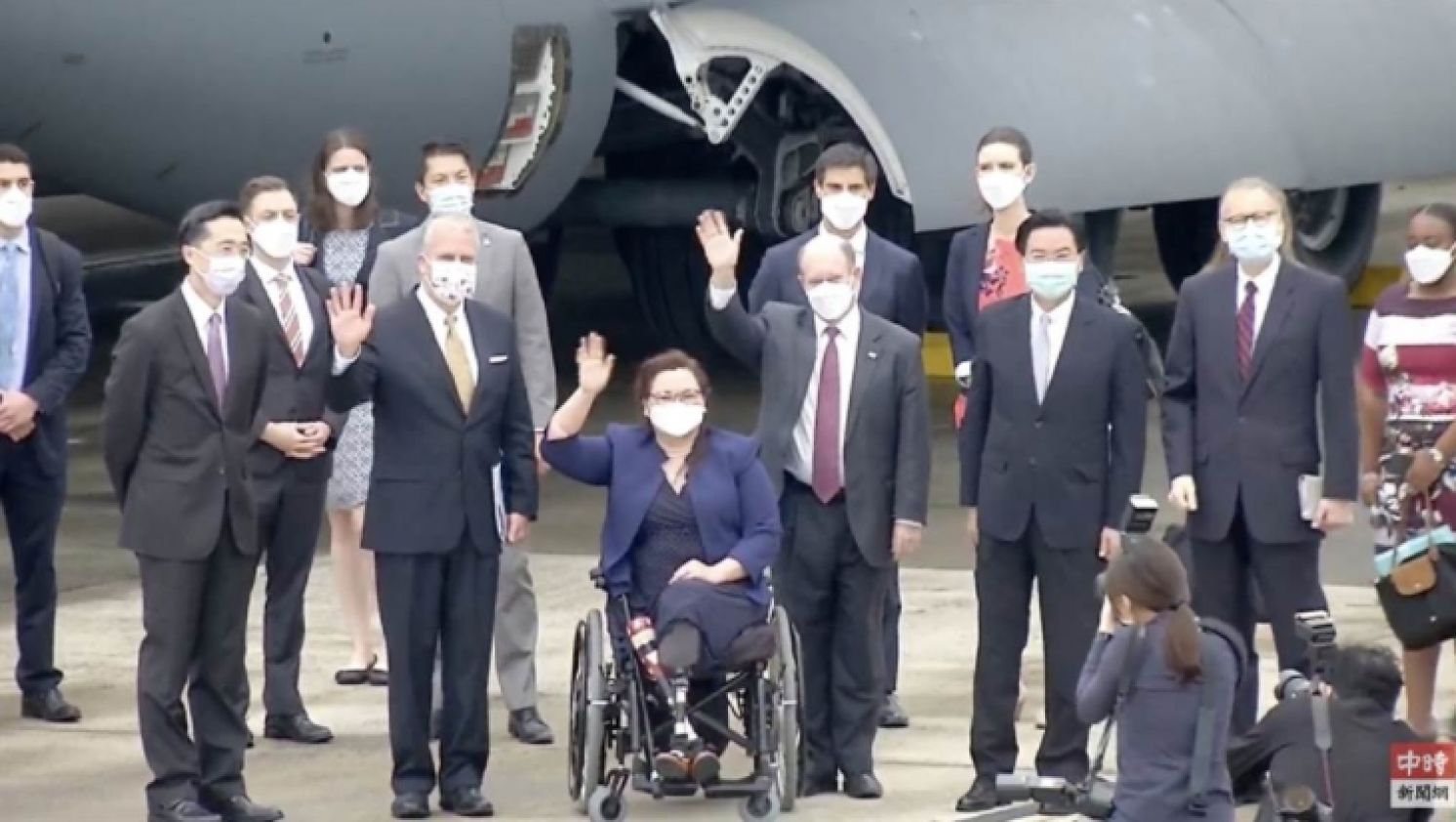
This Week in Taiwan 0530-0606
May 31: The coronavirus (COVID-19) pandemic situation in Taiwan remains challenging. The government has not procured vaccines effectively, while efforts by companies and private groups to purchase vaccines themselves persistently face bureaucratic obstruction. Critics suspect that the government is betting unreasonably on the development of domestic vaccines and question that government officials are trying to manipulate the stock prices of certain pharmaceutical companies. President Tsai Ing-wen personally held a press conference in which she responded that the government has conducted an internal investigation, and no politically appointed officials have problems related to stock trading. Specific allegations will be investigated strictly in accordance with the law. However, the efforts behind experts developing vaccines should not be undermined by baseless claims.
June 1: On May 31, a confirmed coronavirus patient at Shuanghe Hospital in New Taipei was emotionally unstable and wanted to be discharged. He used a fruit knife and injured the three nurses who came to stop him. One of the nurses had her hand veins chopped by the man, which may affect her future work. New Taipei Mayor Hou You-yi expressed his dismay and suggested that the prosecutor charge the perpetrator with a tougher sentence.
June 3: The Executive Yuan passed a fourth COVID-19 relief package, which provides cash subsidies to some 7.3 million eligible farmers, fishermen, laborers, and the disadvantaged. Over NT$55.5 billion (about US$2 million) has been distributed on the first day, benefiting some 3.6 million people.
June 3: The 86,000 metric ton and 316 meter-long container ship "OOCL Durban" belonging to Orient Overseas (International) Limited based in Hong Kong diverged when it was approaching Pier 70 of Kaohsiung Port and ran into another unloading container ship and loading machinery, leading to the collapse of the crane and 50 containers. An adjacent bridge crane was also seriously damaged, and a worker was injured. Losses are initially estimated to be about NT$1 billion, and the exact cause of the accident remains to be investigated.
June 4: Japan supplied 1.24 million doses of vaccines manufactured by British pharmaceutical company AstraZeneca. The vaccines were transported by Japan Airlines to Taoyuan International Airport. This is the first instance that Japan has directly supplied vaccines overseas.
In a Facebook live stream in the afternoon, President Tsai Ing-wen thanked Japan for donating vaccines to Taiwan, which enables Taiwan to be more confident about its democracy. She also thanked the White House for announcing that Taiwan will be included in its plan to boost global vaccine sharing.
June 4: The coronavirus was first detected in Taiwan since January last year. The cumulative number of cases, including the number of cases imported from abroad, surpassed 10,000 on June 4. The epidemic has also spread to the central government. An employee at the Ministry of Economic Affairs had been feeling unwell and tested positive. While they were both diagnosed negative, Minister Wang Mei-hua and Deputy Minister Cheng Wen-sheng were close contacts and need to isolate at home for 14 days. Minister Wang is the first government minister to be quarantined, and she will use video conferencing to handle official matters and meetings.
June 4: The government decided to order domestic vaccines before their completing second-phase trials and is preparing to apply emergency use authorization (EUA) for the public to inoculate before their entering third-phase trials. The move has been widely controversial. Medigen Vaccine Biologics, a leading domestic vaccine producer, saw its stock price drop to the limit every day since May 28. Despite the company announcing on May 30 that it had completed a vaccine procurement contract with the Centers for Disease Control, Ministry of Health and Welfare for 5 million doses, including 5 million supplementary doses, the company's stock price continued to fall sharply. As of June 4, the stock price fell to NT$230.5, representing a decline of more than 40 percent that week. Over the past year and a half, Medigen's stock price has soared more than 13 times. After vaccines became the focus of Taiwan's epidemic prevention efforts, the company stock price rose by more than 180 percent to a high point of NT$417.
June 6: King Yuan Electronics Co. (KYEC) recently saw a cluster infection among migrant workers in its Chunan plant in Miaoli. A total of 195 people have been diagnosed positive as of June 6. All migrant workers at KYEC were asked to stop working and isolate at home but will continue to be paid. Greatek Electronics and Accton, also located in Chunan, likewise saw employees infected. The Central Epidemic Command Center (CECC) asked that about 2,000 individuals connected to the local factories all be screened.
June 6: The delegation led by Senators Tammy Duckworth, Dan Sullivan, and Chris Coons of the United States flew in Boeing C-17 Globemaster III military transport aircraft from South Korea and arrived in Songshan Airport in Taipei. The delegation stayed in Taiwan for three hours.
Delivering remarks from her wheelchair, Senator Duckworth announced that after weeks of deliberation between the three of them and the White House, the United States will donate 750,000 doses of vaccines to Taiwan. The administration of President Joe Biden previously announced that it would donate 80 million doses of American vaccines to the world, including an initial allotment of 25 million.
President Tsai received the delegation at the headquarters of the Songshan military base and thanked the Biden administration for its assistance and inclusion of Taiwan in the first wave of foreign vaccines distribution. She also thanked the three senators for their coordination efforts. According to President Tsai, the vaccines are like valuable rain water to Taiwan, and the Taiwanese people will remember their assistance.